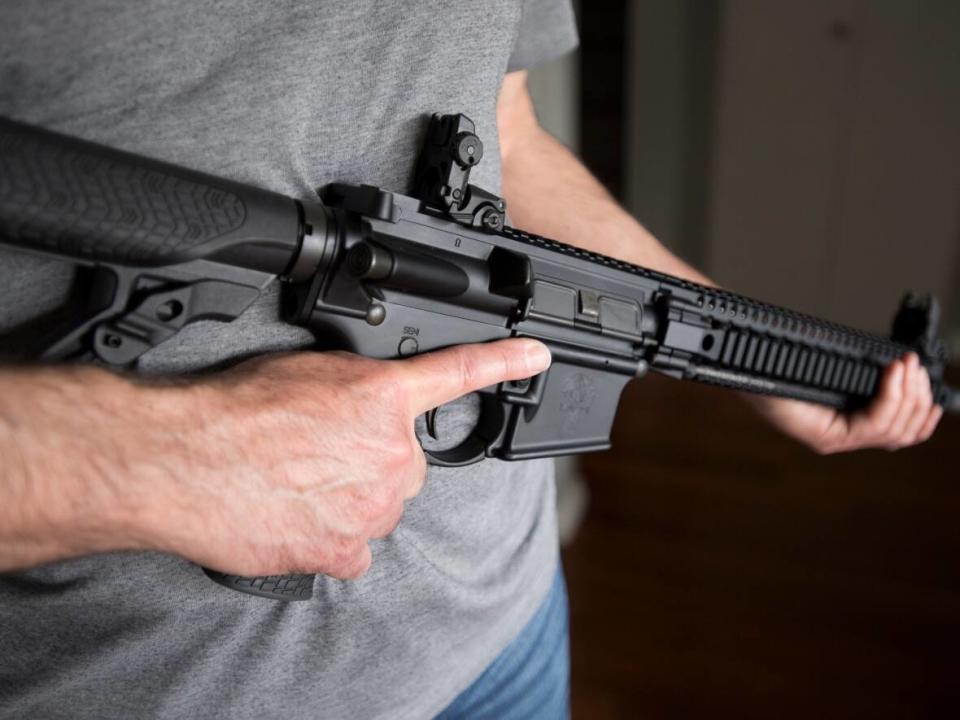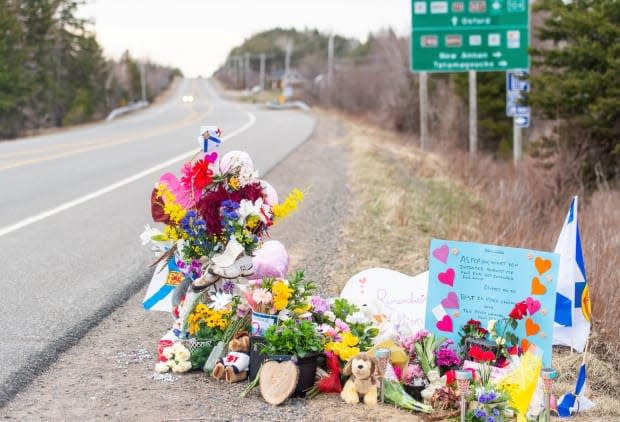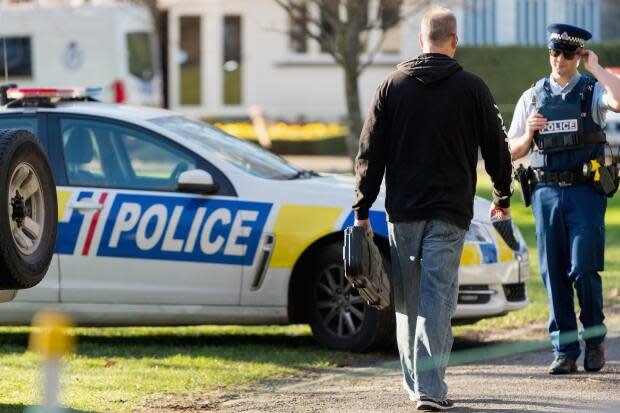Canada Post refusing to collect banned guns for Ottawa's buyback program

Canada Post is refusing to collect firearms that were banned by the federal government in 2020, complicating Ottawa's plans for a buyback program to remove 144,000 firearms from private hands, federal sources say.
The Crown corporation informed the government of its position in a recent letter. It said its decision was based on concerns about its employees' security, according to federal sources who were not authorized to discuss the matter publicly.
One key source of concern being cited by Canada Post is the possibility of staff conflicts with gun owners who have been asked to give up their so-called "assault" or "military-style" weapons, which can no longer be used or sold in Canada.
Prime Minister Justin Trudeau's Liberals promised a buyback program in both the 2019 and 2021 elections. The government officially announced the process in 2020 and is now hoping to finalize it before the next general election, set for the fall of 2025.
Federal officials told Radio-Canada they still believe using the postal service would be the "most efficient" and "least costly" way to recover banned weapons such as the AR-15, which cannot be used or sold in Canada since a federal ban was imposed four years ago.
Ottawa's plan is to have owners of banned guns place the unloaded and secured weapons in government-issued boxes and then send them back to the government to be destroyed. The owners would then be financially compensated.
Government sources say they're puzzled by Canada Post's refusal to receive the weapons, since the corporation already delivers guns that are sold online.
The sources insist that "discussions" with Canada Post are ongoing. One possible compromise would see Canada Post transport the weapons without taking charge of receiving them.
"It's a challenge, but we do not think this jeopardizes our timetable or the government's desire to move forward," said one of the federal sources. "We want the discussions to continue."

The buyout program was announced in May 2020, shortly after the mass shooting at Portapique, N.S. which claimed 22 victims. The shooter possessed five firearms illegally, including three that had been imported without a licence from the United States.
The ban hit 1,500 types of weapons, including the AR-15, which has been used in a number of mass shootings in the United States, and the Ruger Mini-14, which was used to kill 14 women at the École Polytechnique in Montreal in 1989.
"These weapons were designed for one purpose and one purpose only — to kill the largest number of people in the shortest amount of time," Trudeau said. "There is no use and no place for such weapons in Canada."
The government initially gave itself two years to remove these weapons from circulation. An amnesty period — during which owners of banned firearms must keep them locked up at home — has since been extended to the end of October 2025.
The government has promised to carry out the buyback in two phases, starting with weapons and parts still in the hands of businesses and then proceeding to guns owned by individuals. The first phase could begin soon; the second phase is expected to take longer and be more complicated.
The gun control lobby wants Canada to model its program on New Zealand's program, which recovered 56,000 semi-automatic weapons months after a white supremacist killed 51 people and injured dozens at two mosques.

Ottawa initially tried to work with provinces and various police forces across the country to collect the banned firearms. Four provinces — New Brunswick, Alberta, Saskatchewan and Manitoba — urged Ottawa to "halt plans to use scarce RCMP and municipal police resources" to "confiscate" legally acquired firearms.
Conservative MP Pierre Paul-Hus said the federal government's program is going in the wrong direction.
"Instead of taking aim at gangs and contraband guns, the Liberals are implementing a buyback program that punishes legitimate gun owners and ignores the real source of most gun crime in Canada," he said in a media statement.
Gun owners annoyed by delay
Current owners of banned firearms are criticizing the delay between the ban and the buyback, when they're expected to store their weapons.
Pierre Pharand, co-owner of a shooting centre in L'Ange Gardien near Ottawa, denounced what he called the "confiscation" of legally-owned firearms.
He accused the government of being more interested in winning votes than collecting weapons.
"The weapons that have been banned, I can't do anything with them. I can't transfer them. They are just accumulating dust and we are forced to wait," he said.
The government has said it would offer between $1,300 and $6,200 for individual banned firearms.
Depending on the method used, the buyback program could cost anywhere from hundreds of millions of dollars to more than $1 billion.

 Yahoo Sports
Yahoo Sports 